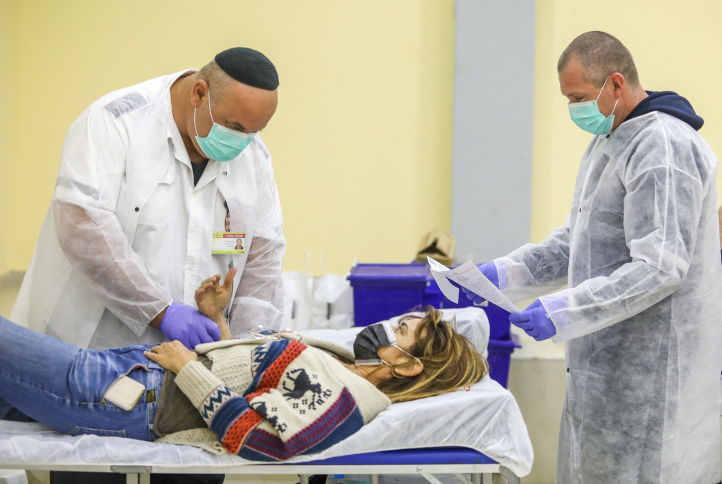“We’re nearing the exponential phase of the epidemic,” Defense Minister Naftali Bennett said.
By Josh Plank, World Israel News
The worst is still ahead, Israeli officials warn as coronavirus cases continue to rise.
“Unfortunately, we will continue to see more sick and deceased,” Director of Public Health Services Siegal Sadetzki told Kan Radio on Thursday morning.
She said there is no doubt that there are more infected than Israel knows, warning that the worst is still ahead.
“We’re nearing the exponential phase of the epidemic,” Defense Minister Naftali Bennett said in a press conference Wednesday, The Jerusalem Post reports.
“We’re seeing accelerated growth in the number of serious corona-positive people who need respiratory support. This is worrying,” he said.
Bennett said he would like to increase the number of available respirators to 10,000. There are currently only about 3,000 in the country with about half of those already in use.
“We need a lot more,” he said, adding, “There will be no respirators available when our grandparents are dying.”
Bennett told reporters, “I will fight and will not give up until we convince everyone to do a 180° and change the policy to do mass testing. If the State of Israel wants to get back to normal, we should be carrying out 30,000 tests a day.”
“If we could carry out the operation at Entebbe, we can do this, too,” the defense minister said.
IDF Chief of Staff Lt.-Gen. Aviv Kochavi warned in a letter to commanders, “There is a serious phase still ahead of us.”
“There will be a deterioration in the scope of the health of patients, the economy, and society,” he said.
Kochavi said there will no choice but to increase the scope of assistance that the IDF is already providing as the crisis is expected to “last many months.”
“As time goes on, and as the economic, medical and mental state of the country will grow more difficult, so will the impact on the soldiers, career officers, and commanders,” Kochavi said.
He said that despite increased coronavirus-related duties, the IDF must continue to train and maintain operational readiness as “an attack, another round of violent confrontation, and even a widespread operation can also occur during this period.”


